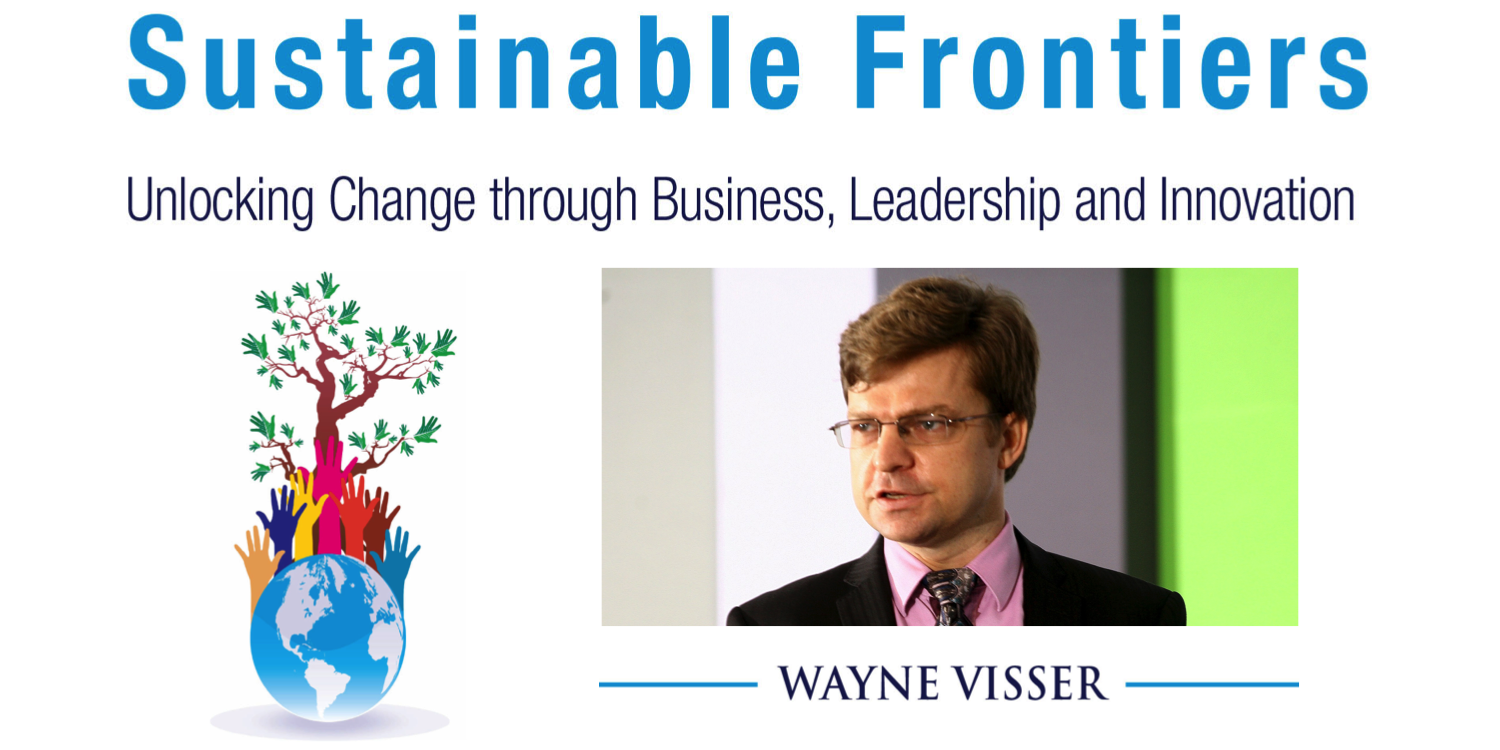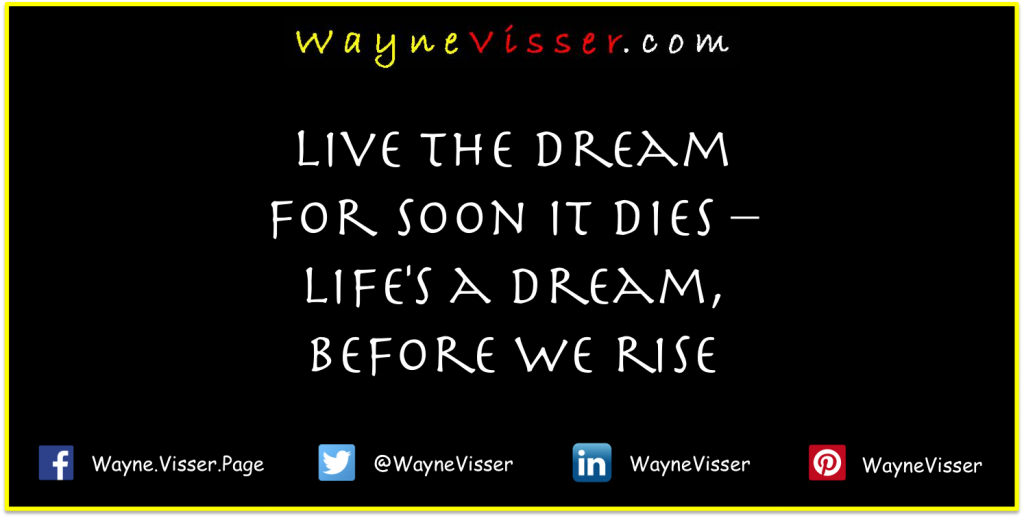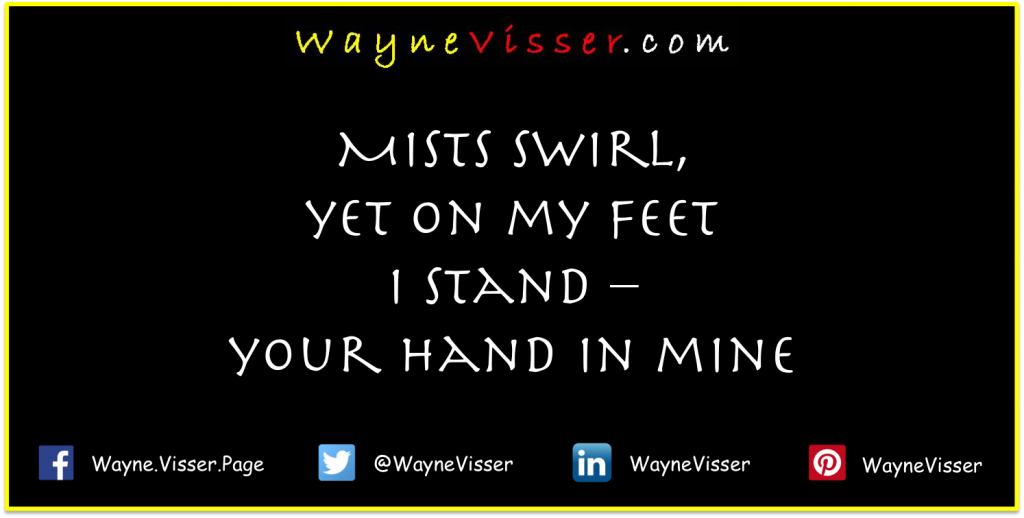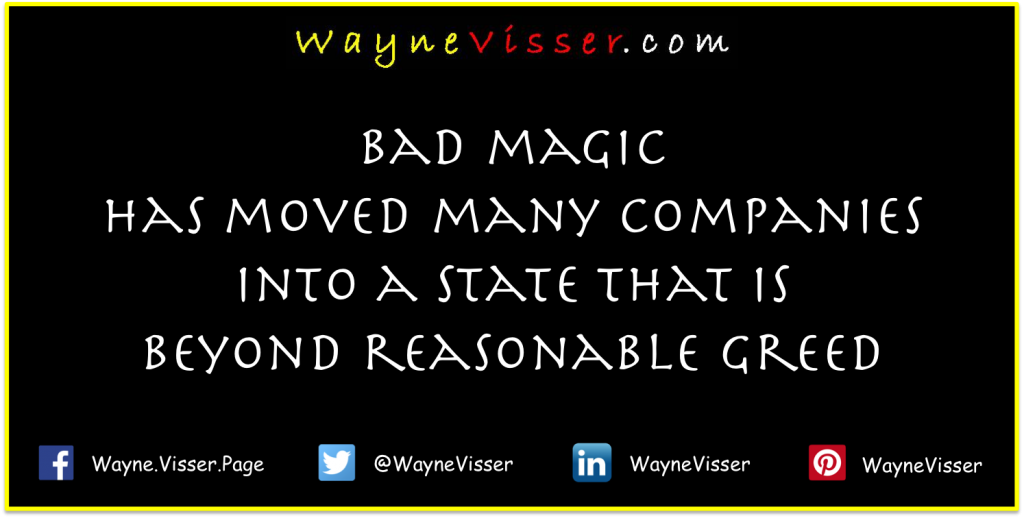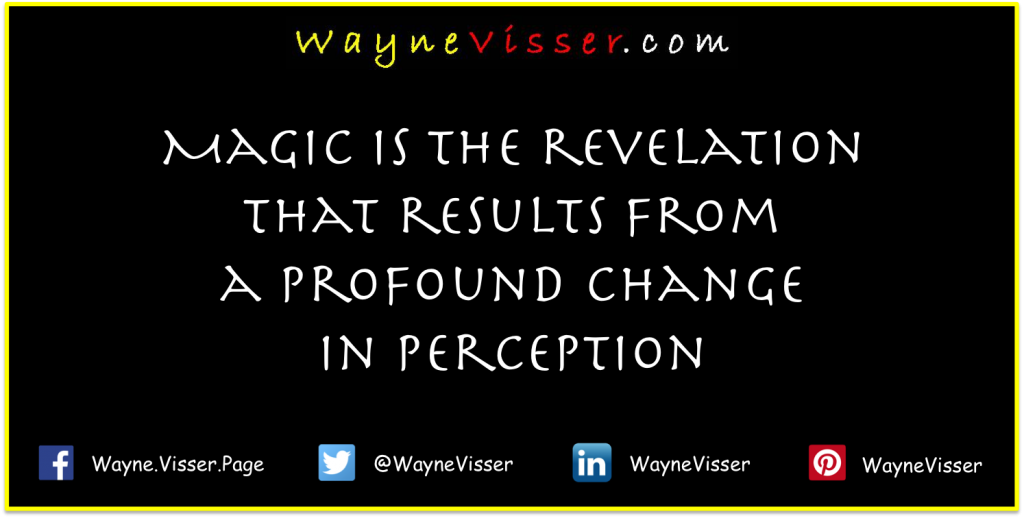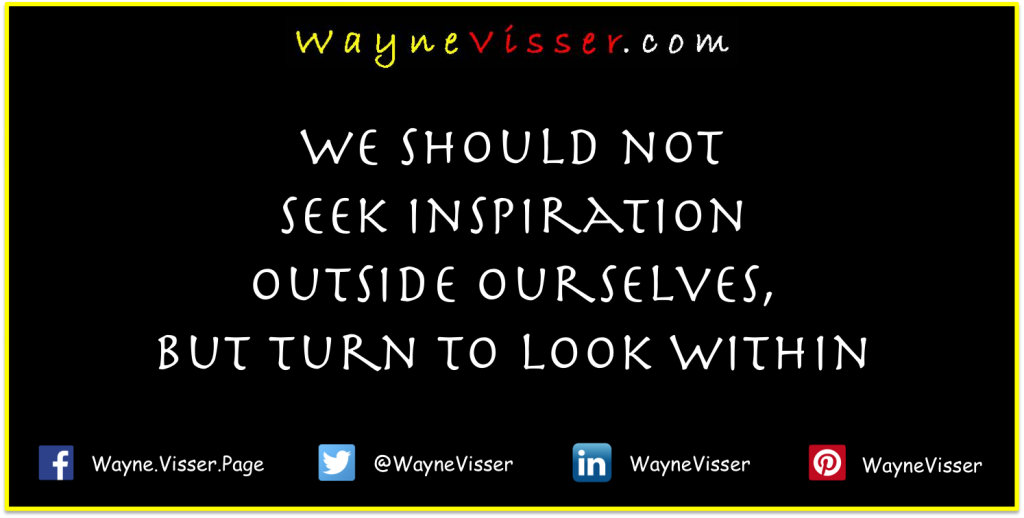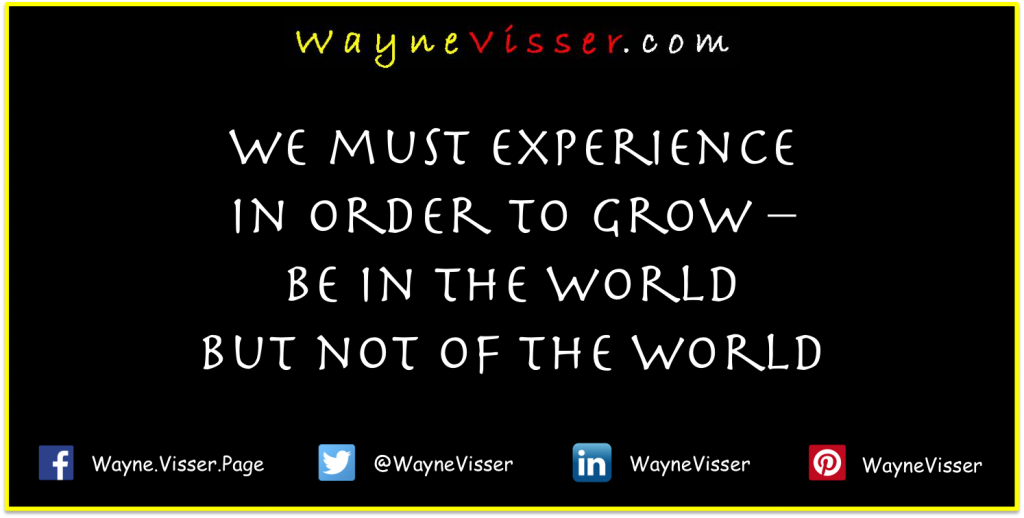Sustainable Frontiers
Book Title: Sustainable Frontiers: Unlocking Change Through Business, Leadership and Innovation
Authors: Wayne Visser
Publication details: Greenleaf Publishing, 2015
For more information: See the Book Profile
Quotations
- So much of making a successful transition to a more sustainable future depends on letting go
- We must find ways to let go of an industrial system that has served us well, but is no longer fit for purpose
- We have to let go of old styles of leadership & outdated models of business, high-impact lifestyles & selfish values
- We must learn to let go of cherished ideologies that are causing destruction
- We must learn to let go of beliefs about ways to tackle problems that are failing to resolve crises
- We are scared to let go, because we are comfortable clinging to our consumptive habits & selfish behaviours
- The future is uncertain – and our greatest fear as humans is a fear of the unknown
- We would rather trust (and fight to protect) the present we know than gamble on the future we don’t know
- Civilizations that fail to change are civilizations that ultimately fall
- The decline of civilizations starts with the failure to open the public and political mind to new possibilities
- People become trapped in a paradigm – a pattern of thinking – and are closed to a different, emergent world-view
- If we are to reach sustainable frontiers, it must begin with changing our collective minds
- First, we must change our collective minds – and only then will we change our collective behaviour
- We will all have to let go of cherished beliefs and strategies that are not working
- Sustainability I’ve discovered to be many things, but not an effective strategy for change – at least, not yet
- The essential idea of sustainability is about as exciting as watching lettuce wilt under the midday sun
- Sustainability has won many battles, but has lost the war for the hearts and minds of the people
- Sustainability has been warning of scarcity & survival, when what people want is prosperity & thriving
- The sustainability movement has failed to understand what it means to be human
- As human beings, our lives are all about change – about growth & development & making things better
- Sustainability “wonks” believe that they are all about Progress with a capital P. The world remains unconvinced
- Sustainability is like a geeky, pimply teenager who has come to our party & turned off the music
- Sustainability folks keep telling us that we would really be much happier if we stopped having so much darn fun!
- The key to having a good time, declares the sustainability mantra, is to practice a lot more self-restraint
- All those on board the sustainability austerity train, say “Hell, yeah!” … What, no one?
- If we are to survive (let alone thrive), the world is going to have to change – dramatically, radically & irreversibly
- When change does turn our lives upside down (as it will), how can we become more resilient?
- Change is all about connection. In other words, connectivity is the underlying catalyst for change
- Learning only happens when synapses are formed: they connect the neurons to each other
- Scaling the number of networked relationships is at the heart of change, including biological & social evolution
- If we want to save the sustainability movement, we will have to get much smarter about change
- We desperately need transformational leadership in order to advance the frontier of sustainability
- Calamitous leadership led us all, Pied Piper-like, into the 2008 global financial crisis
- The global financial crisis was ushered in while leading companies happily chanted “greed is good” in unison
- To survive in the sustainability era, companies will have to move beyond their aggressive tendencies
- Companies need to become genuinely concerned about the perspectives & wellbeing of all their stakeholders
- Stakeholders, if maltreated, can bite bite back – & even the most macho multinationals can bleed
- Too many companies have grown used to speaking to stakeholders only on a ‘need to know’ basis
- There is no shortage of companies that mistake ‘telling’ for ‘dialogue’ & get backchat from angry stakeholders
- Our incumbent global cadre of executive leadership is being forced to shapeshift, like it or not
- Those that have the foresight to change fundamentally are more likely to survive and thrive
- When it comes to sustainability, we are actually talking about changing a vastly complex system
- It takes a complex mix of different players to bring about lasting change for sustainability
- The bottom line is that we are gambling with our climate future, but we can still spread our bets
- If we want real transformation in society, our best chance is to keep spinning the wheel of systems change
- If there is one reason why organisational change fails, it is because we underestimate resistance to change
- Resistance to change comes from inertia – and inertia happens because change is like an iceberg
- Shifting our habits, attitudes, beliefs and values is the real secret to making change happen
- Changing a leader’s world-view is the first step to changing an organisation
- Sustainability reports are practically burping with all the ‘low hanging fruit’ companies have gorged on
- As humans, we are always ‘chasing the blue’ – so we have to be convinced that where we are going is sunnier
- Most people in most parts of the world don’t believe a sustainable future is necessarily a better future
- A blue skies strategy means being willing to take a risk as a leader & to set big hairy audacious goals
- Blue-sky leaders know that we are only inspired by reaching for an impossible dream
- We desperately need more Apollo-like sustainability missions that the public can get genuinely excited about
- Impacts that are far away, or in the future, are like smoldering fires in the distance: not action-worthy
- People need to feel the heat: directly, personally, here and now. That might mean lighting a few fires
- If you’re trying to make change happen, use burning platforms to create the urgency for change
- Use blue skies to create the reasons to change, baby steps for momentum & big beliefs to sustain energy
- Unlocking change is not only about what you do, but also whether you are tapped into your own power
- There are deep psychological – even existential – reasons why we “do” sustainability
- Sustainability allows us to feel that our work is aligned to our personal values
- Sustainability is a bit like chess – it is complex, dynamic & challenging, like an earth-puzzle that needs solving
- There are four sustainability leader archetypes – experts, facilitators, catalysts & activists
- Experts, facilitators, catalysts & activists each represent a different kind of sustainability change agent
- In the world of sustainability superheroes, you should know which cape and tights fits you best
- Aligning with your inner superhero allows you to be more professionally effective and purpose-inspired
- For change to be sustained and transformational, we need the joint efforts of the sustainability Fantastic Four
- The sustainability Fantastic Four superhero powers are knowledge, collaboration, imagination & compassion
- The first step to overcoming short-termism is to challenge the prevailing wisdom
- Sustainability must be recast as being fundamentally about the way a company does business
- We must keep identifying & promoting actions that question shareholder supremacy & financial speculation
- Trust comes from investing in long-term relations, rather than attempting to buy positive opinions
- Companies lose the trust of stakeholders because they over-promise and under-deliver
- Only if there is a genuine strategic commitment to sustainability from the top will we see meaningful change
- Stakeholders remain skeptical of companies’ motives & commitment to societal improvement – & rightly so
- To overcome stakeholder skepticism, companies must commit to bold strategic social & environmental goals
- To succeed, sustainability has to be translated into the language of the business or sector or functional area
- Unless sustainability is built into the company’s compensation schemes, middle managers will not align
- We need sustainability leaders to be consistent role models & to put their money where their mouths are
- When employees feel proud of their organization’s sustainability efforts, they become its biggest champion
- Unless the C-suite is on board with sustainability, all other efforts are bound to fail
- Sustainability leaders are able to think systemically, to see interconnections & to bridge silos
- Sustainability leaders will always find a way to put their values to work, no matter what industry they’re in
- We all share responsibility for inspiring & supporting each other to create a better world
- Revolutionary change is more often the result of new ways of thinking than new ways of doing
- CSR & triple bottom line efforts have been criticised as little more than window dressing & corporate spin
- Employees believe they work for great organisations when they trust the people they work for
- We must create work environments that support women who do not want to trade-off their career & family
- Creating a family-friendly enterprise requires a shift in leadership perceptions & organizational culture
- Let’s celebrate workplaces that support not only you & your job, but also your family & your quality of life
- Promoting cycling among employees is not only good for personal health, but also good for the planet
- It is a popular myth that CSR is not relevant, too expensive or not incentivized for SMEs
- Implicit CSR includes informal ethical practices that are not dependent on size or financial muscle
- I look forward to the day when “small is beautiful” applies as much to sustainable business as economic activity
- Understanding virtual water – embedded in the things we trade – is critical as our global water crisis increases
- To get us through the day, it takes about a hundred times our own weight in water [in industrialised economies]
- We all have footprints. But we can lighten the tread & ensure they are heading in a more sustainable direction
- Research shows that businesses with more women on their board of directors bring a string of sustainability benefits
- The circular economy – where closed-loop production brings us closer to zero waste – is a real business opportunity
- Our economy is so inefficient that less than 1% of the resources we extract still exist as products 6 months after sale
- Scaling up the circular economy requires concrete measures to meet mult-stakeholder sustainability targets
- The circular economy represents an annual $380-630 bn material cost saving opportunity in the EU
- If we fail to achieve a sustainable technology revolution, we will face “overshoot and collapse” as a civilization
- Not only is technological innovation booming, but it is rapidly shifting twoards sustainable solutions
- Many of the World Economic Forum’s top 10 most promising technologies have a clear enviornmental & social focus
- The market for clean energy technologies is projected to grow from $248 bn in 2013 to $398 bn in 2023
- More patents have been filed in the past 5 years than the previous 30 for climate change mitigation technologies
- Contrary to what some may think, emerging markets cannot be assumed to lag on sustainable technological innovation
- What does the future hold? The sustainable technology innovation wave is only just building
- According to McKinsey & Co., resource productivity opportunities could save us $2.9 trillion by 2030
- The challenges of the 21st century will stretch our collective capacity for innovation like never before
- To ensure food security, we need to find 175-220 million hectares of additional cropland by 2030
- To ensure food security, we need to increase total food production by about 70% by 2030
- We have to tackle the problem of 1.3 billion tonnes of food wasted every year – a third of all food produced
- Resource productivity opportunities show that reducing food waste could return $252 bn in savings by 2030
- Creating a sustainable “cold chain” in the developing world could eliminate 25-50% of food wastage
- The sustainability revolution is as much about changing perceptions, attitudes & behaviours as changing technology
- Agricultural demand will require a 140% increase in water supply over the next 20 years compared with the past 20
- It is estimated that the global biofuels market could double to $185.3 bn by 2021
- We are all, with our modern lifestyles, hooked on chemicals, for energy, colourants, food, health & beauty
- The WHO estimates that the chemical industry causes around a million deaths globally every year
- Chemicals are harming people, yet because of their benefits & the world’s addiction, they cannot be eliminated
- The cost to the global economy of chemical pollution has been estimated at $546 bn, rising to $1.9 tn by 2050
- Can the chemicals ever be sustainable? The answer is maybe. The big leap forward is green chemistry
- The “green” label has been so abused over the past few decades that it is wise to suspect PR spin or greenwashing
- The green chemistry market is set to grow from $2.8 bn in 2011 to $98.5 bn by 2020, saving the industry $65.5 bn
- The top benefits from implementing sustainable technology are resource productivity & economic development
- The top barriers to sustainable technology adoption are the local of local qualified workers & institutional capacity
- The marketing benefits of demonstrating sustainable technologies in developing countries can be significant
- Major reductions in the environmental impacts of the chemicals industry can be achieved by adopting best practices
- Resource scarcity & human rights issues surrounding metals extraction mean the industry is facing some tough realities
- People living in extreme poverty could drop from 1.2 billion in 2010 to under 100 million by 2050
- An environmental disaster scenario could mean 3.1 billion more people living in extreme poverty by 2050
- Unless the world’s booming economies can lighten the weighty anchor of resource consumption, we will all sink
- The largest metals & mining companies have environmental external costs of $220 billion, 77% relating to carbon
- The picture that emerges is of a metals sector under seige, an industry that is soon to be the victim of its own success
- Iron & steel energy efficiency & end-use steel efficiency could deliver $278 billion in resource savings by 2030
- The sustainability impacts of the extractive sector are serious – sometimes even tragic & catastrophic
- Technology, the source of so much destruction in the mining & metals industry, can also be its saviour
- Today, less than a third of 60 metals analysed have an end-of-life recycling rate above 50% & 34 are below 1%
- The best available sustainable technology is not always the most applicable, especially in developing countries
- Technology can help to rescue the high-impact extractives sector from its siege by the forces of sustainability
- Extractives companies need to recast themselves as resource stewardship companies
- Extractives companies must become experts at circular production and post-consumer “mining”
- Customers & governments need to give up their compulsive throw-away habits & embrace the take-back economy
- Necessity, rather than an unexpected attack on conscience, will drive the transition to a circular economy
- Sustainable technologies are transforming our outdated industrial model, which is no longer fit for purpose
- Without innovation, we are unlikely solve many of global social & environmental problems
- Eco-innovation is the next evolution beyond eco-efficiency, to strategically transform the whole business model
- When it comes to reinventing capitalism, eco-innovation is one of the next waves business will want to surf
- Technology presents citizens with far greater opportunities to engage with sustainability issues than ever before
- Hyper-connectivity makes responsiveness more possible – and less likely
- Value-action gaps make stakeholder feedback more collectable – and less valuable
- The wisdom of the crowd can – without validation – also become the tragedy of the commons
- The proliferation of sustainability standards has led to market confusion for investors & consumers
- What is missing across the sustainability standards arena is greater clarity & more co-ordination
- It is inevitable that advances in “big data” analytics will start to be applied to sustainability databases
- Sustainability data structuring, searchability & signposting will become at least as important as a qualitative narrative
- What really matters for the fututre of transparency is how sustainability data is organised & made accessible
- Sustainability reporting is only one face of the transparency coin; on the other side is sustainability ratings

